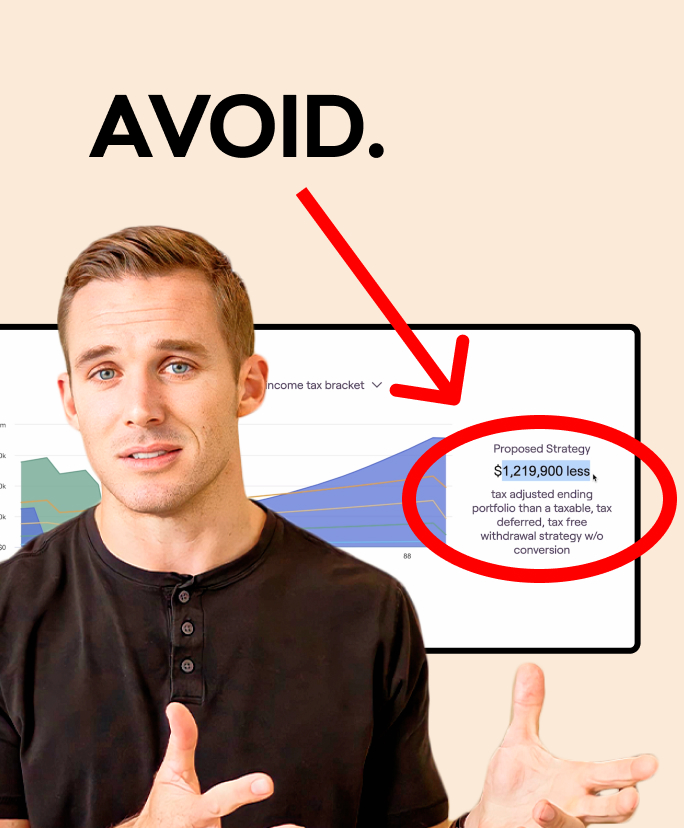When you’re on the edge of retirement, it’s easy to get caught in an endless cycle of “just one more year.” One more bonus. One more stock vest. One more bump in the Monte Carlo score. And sure, financially speaking, working longer often improves your projections. But the real question isn’t “Can you afford to retire?”—it’s “What is it costing you to keep working?”
In this post, we’re going to explore the five types of wealth that matter in retirement—not just financial wealth, but time, health, mental clarity, and relationships. Because ultimately, retirement isn’t just a math equation. It’s a life decision. And unless you’re measuring the right things, it’s easy to keep optimizing for the wrong outcome.
The Trap of the Financial Scorecard
We worked with a client a few years ago who was caught in what you might call a “good problem.” They were in their peak earning years—earning strong bonuses, building up deferred comp, and watching equity compensation vest with every quarter. Each time we ran their retirement projections, the numbers said the same thing: keep working. Every model showed that just one more year would improve their odds of success. More savings. More options.
But something wasn’t adding up.
This client was constantly exhausted. Their health was declining. Their relationships were stretched thin. They couldn’t shake the feeling that they were missing something important—but the numbers kept saying to stay the course.
What they didn’t realize is that they were using only one scorecard: financial wealth. And that’s where a lot of people get stuck.
Money Is Just One Kind of Wealth
We live in a culture that puts a lot of emphasis on net worth. It’s quantifiable. Easy to track. If your portfolio grows, you’re winning. But there are other types of wealth that don’t show up on your balance sheet—and they’re often even more important.
Sahil Bloom, in his book The Five Types of Wealth, offers a more holistic framework:
- Financial Wealth – Your assets, investments, income, and financial freedom.
- Time Wealth – The ability to choose how you spend your day.
- Health Wealth – Physical energy, freedom from illness, and the ability to enjoy your body.
- Social Wealth – Deep, meaningful relationships with family and friends.
- Mental Wealth – Peace of mind, self-awareness, and emotional resilience.
Most people focus solely on financial wealth—especially in retirement planning. But what’s the point of retiring with a larger portfolio if your body’s breaking down, your marriage is fraying, or your kids barely know you?
What Are You Really Optimizing For?
There’s a hidden danger in using money as your primary measure of success: it’s easy to see and easy to grow. You work an extra year, and you immediately see the result. Bigger paycheck. Bigger 401(k). More stock. The reward loop is tight—and addictive.
But the other types of wealth don’t give you the same quick feedback. Skip the gym today, and your body won’t protest. Miss a dinner with friends, and life moves on. Stay up working instead of watching a movie with your spouse, and the world doesn’t fall apart. Not immediately, anyway.
But compound those tradeoffs over 10 or 20 years, and the impact becomes irreversible.
That’s why the financial scorecard, while essential, needs to be part of a bigger picture. And that picture starts with asking a deeper question: What kind of life are you trying to build?
Measuring the Tradeoffs
Let’s say you’re deciding whether to work one more year. Your Monte Carlo simulation improves from 95% to 98%. That feels like a win. But what if, in that same year:
- Your social wealth drops because you missed another family trip.
- Your health wealth declines because you’re too busy to prioritize movement and sleep.
- Your mental wealth takes a hit because of chronic stress or burnout.
Suddenly, that extra 3% doesn’t seem like such a slam dunk.
The irony is that many people justify staying in high-stress jobs because they want to support the other types of wealth. “If I keep working, I can pay for college, take better vacations, give more.” But at some point, the tradeoffs stack up, and the things you’re working for begin to suffer because of the work itself.
Rules, Routines, and Knowing Yourself
So how do you step out of the cycle? For many high-achieving professionals, the answer starts with structure.
One team member shared that she sets a hard stop at 5 p.m. every day. Phone goes away. Work stops. That’s when her focus shifts to family—walks with her spouse, reading books with her son, eating dinner together. It wasn’t easy to create that boundary, but now it’s sacred. She still works hard, still hits her goals, but she protects the other areas of her life with intention.
Other people find clarity through journaling, meditating, or simply spending quiet time alone. One advisor mentioned asking himself: What is my future self going to thank me for? That question reorients his day—from checking email to investing in relationships, health, or creativity.
The key is understanding what truly matters to you—and building your schedule, goals, and financial plan to support that.
From Financial Planning to Life Planning
Here’s what we’ve learned after years of helping people navigate retirement:
- A successful retirement is not a Monte Carlo score. It’s a life well-lived.
- Financial wealth is the foundation, not the goal.
- Time is your most valuable asset. You can’t earn more of it.
- That answer doesn’t come from a calculator. It comes from you.
If you’re evaluating whether to step away from your career, the starting point isn’t just “Can I afford to?” It’s “What does wealth mean to me—and am I investing in all five types?”
If you’re still not quite sure how to answer that question, we’re always here to help. Schedule a call with us today.
The information presented is for educational and informational purposes only and should not be construed as personalized investment or financial advice. The content discusses general retirement planning strategies and is not intended to recommend any specific course of action for any individual.
Social Security claiming strategies involve a number of variables, including life expectancy, portfolio returns, tax considerations, and personal circumstances. Decisions regarding Social Security benefits should be made in consultation with your financial advisor, taking into account your full financial picture.
Examples provided are hypothetical and for illustrative purposes only. They do not reflect any specific client situation and should not be relied upon for investment decision-making. Past performance of investments is not indicative of future results. All investing involves risk, including the potential loss of principal.
Root Financial Partners, LLC provides tax planning as part of its financial planning services. However, we do not provide tax preparation services, represent clients before the IRS, or offer legal advice.
Clients should consult their CPA or attorney before implementing any tax or legal strategies discussed. Nothing in this content should be interpreted as a recommendation to take a specific tax position or legal action.
This content may include discussions around advanced financial planning strategies such as Roth conversions, backdoor Roth IRAs, tax loss harvesting, charitable giving, estate planning tactics, or Social Security claiming strategies. These concepts are general in nature and are not personalized advice. Actions related to these strategies may trigger tax consequences or legal implications. Always consult with your CPA or attorney to assess suitability based on your personal financial circumstances.
Suitability for these strategies depends on your individual tax situation, income, age, investment profile, estate plan, and other factors. Actions related to these strategies may trigger tax consequences or legal implications. Always consult with your CPA or attorney to assess suitability based on your personal financial circumstances.


